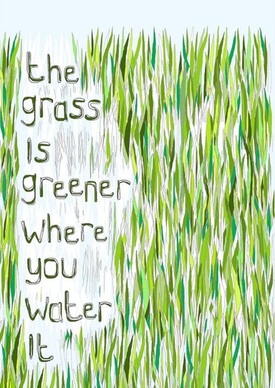 Healthy partnerships aren't automatic. Once we commit to a relationship we have to be willing to take the time and energy to develop and work on it. Research shows, however, that the quality of our personal relationships can have a big impact on our physical and mental health. For example, relationships influence the ways we eat, exercise, engage with family, and how we spend our downtime. Although relationships are not going to be "perfect" all the time, fostering healthy interactions and understanding one another can help you and your partner to feel secure, happy, loved, respected, and free to be yourself. The following questions are to help you explore your relationship. There are no "right" or "wrong" answers - just opportunities to keep open the lines of communication. 1. Do you believe your partner is your greatest ally and support? 2. What's your partner’s greatest quality? 3. Do you enjoy spending time with each other’s friends and family? 4. How does your partner show affection? 5. How does your partner support you when you are going through a tough time (job loss, family struggles, school challenges)? 6. How often do you laugh together? When was the last time? - Learn more about WVC Therapist, Appointments and Counseling Fees.
1 Comment
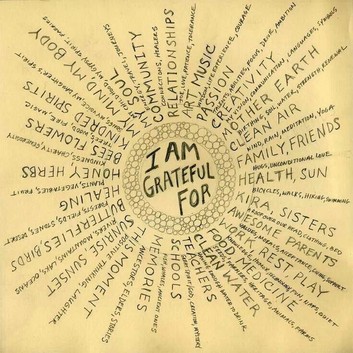 How fluent are you in the language of appreciation? In our "do more" and "be more productive" culture, often times, learning appreciation and gratitude is a muscle that most of us haven't been encouraged to develop. But, appreciation simply defined as the recognition of the good qualities of someone (or something), and gratitude broadly defined as the appreciation of what is valuable and meaningful to you, can make the difference between a relationship filled with headaches and one that's filled will peace. But, it's not just a simple "thank you" that will change your relationships. The type of appreciation I'm talking about here is the kind that opens you up to see and comment on another person's strengths in a genuine, caring, and respectful way. What's more, a number of early research suggests that expressing gratitude, thankfulness, and appreciation to your child, colleague, partner, etc., can create positive feelings, which in turn, contribute to your overall sense of well being and life satisfaction. (1) So what are a few simple steps you can take to increase appreciation in your relationships? 1. Start with yourself. Take a few moments each day and create a list of things in your life for which you are grateful. Maybe, it's your family, your dog, the food you eat, or your job. Don't overthink it. Just write. Another action you might try is to take a few minutes at the end of each day to ask yourself: “What did I do that I can feel satisfied with today?” 2. Appreciate others. Notice what your partner, children, friends, colleagues do well. Think of what you appreciate and just say it to them out loud. Another action might be to write a thank you note to someone, or send a letter to someone you recognize as valuable in your life. The more specific you can be about what you value, the more positive your impact on that person may be. Lastly, practice saying "thank you" to your grocery clerk, bank teller, or restaurant server, and just observe the response you receive in return. 1. Gratitute and Well-being. Pyschiatry (Edgemont). 2010 November; 7 (11)18-22. - Learn more about WVC Therapist, Appointments and Counseling Fees. image via nurture nature project
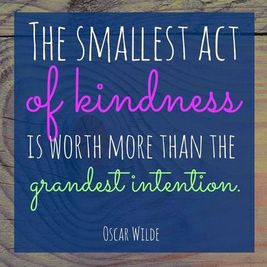 1. Say "Good morning" to your partner before you get out of bed. 2. Buy a cup of coffee for the person in line behind you. 3. Say, "I love you" to someone you love. 4. Write a simple one sentence note of appreciation to a family member ("thanks for taking out the garbage"). Leave it on a post it in an unexpected place someone they will find. like the bathroom mirror. 5. Offer to assist an elderly neighbor by walking their pet or picking up groceries at the store. 6. Leave cookies in the office kitchen. 7. Write a letter to yourself and highlight five of your talents. 8. Take old old clothes to the Goodwill in your neighborhood.. 9. Say "hello" to five strangers today. Look for opportunities at the grocery store, bank, restaraunt, coffee shop, office, and school. 10.. Compliment someone! - Learn more about WVC Therapist, Appointments and Counseling Fees. 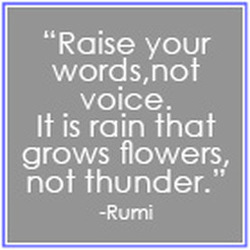 It's safe to say that conflict is inevitable in any relationship. But, for many couples learning how to respectfully resolve conflict can be a bit more challenging. For example, when couples view conflict as a threat to the relationship and something to be avoided, they often find that unaddressed disagreements make for much bigger problems down the line. Healthy couples fight, but they "fight fair" - accepting responsibility for their part in a problem, admitting when they are wrong, listening to their partner, and seeking compromise. When it comes to fighting, if you approach your partner with the attitude that things have to be your way, it will be difficult to find common ground. While it’s certainly OK to have strong convictions, your partner deserves the same respect. But, you are both more likely to get your needs met if you respect and listen to each other. If you find yourself wanting to lash out in the middle of an argument, try one of these three tips:
 Ready to tackle your spring projects? How about Spring Cleaning your relationship? Just like with your home projects, Spring is a great time to throw open the windows, let in some fresh air and renew the important relationships in your life. There are a lot of fun things you can do and you'll be glad you took the time to do them! Here are five tips to get you started. 1. Positive Thinking Consider the important relationships in your life and make a list on a napkin or your laptop of who they are and why the matter. Take a moment today to remember something positive about each one of these people. If you are clearing out the cobwebs in your marriage or relationship, tell the person how much they mean to you. 2. Listen It's often said that communication is the key to a good relationship. But, when one person doesn’t feel heard by the other it can be nearly impossible to communicate. Simply knowing your partner cares enough to listen can be helpful, even when you disagree. 3. Get to Know Each Other... Again Whether you've been together for 3 years or 30 years, it's easy to assume we know our partner's every wants, needs, and irritations. But, it's impossible to know everything about your partner especially when life is in a constant state of change. Sit down and ask each other questions. If you're at a loss about what to ask, try one of these: What would you consider your ideal job? What's your favorite novel? What are your three greatest achievements so far? 4. Create Rituals Whether it's a weekly date, reading a book together, or Sunday brunch, take time to renew and build on your shared interests. If you are already committed to one or two activities, why not take this Spring to initiate a new one? 5. Toss out the garbage Just like old clothes can clutter up your closet and prevent you from seeing your favorite shirt, hanging on to old arguments and past hurts can eat away at the foundation of your relationship. Make peace with old wounds and try to see it from your partners perspective. This way you can move on to what is blooming this Spring. - Learn more about WVC Therapist, Appointments and Counseling Fees. 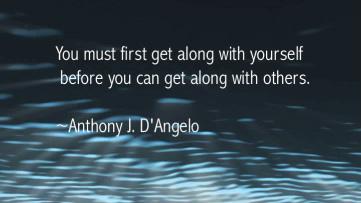 Relating to others is a necessary part of daily life. From discussing household chores and expenses with our partners to negotiating differences among colleagues to planning a dinner with friends, how we interact is integral to how we get our needs met on a daily basis. And, the results impact how we feel about our lives and ourselves. For example, how we interact has the potential to create friendship, growth, support, understanding, and connection. It also has the potential to bring frustration, anger, misunderstanding, disappointment, and pain. So what is it about the way we interact with others that creates agreement or disagreement, appreciation or criticism, loyalty or indifference? Well... it's not so simple. But, when you think about how to interact with others to create connection, understanding and support, it's important that you start with you.
- Learn more about WVC Therapist, Appointments and Counseling Fees.  Most couples that I meet with want to improve the communication in their relationship. Whether the difficulty in communication has to do with careers, how to raise children, finances, sex, housework, or the in-laws, communication can sometimes become a minefield where neither partner feels heard or valued. As a therapist, it is sometimes less important for me to know what is actually being said and more important for me to understand how the message is being delivered and received between partners. For example, one assumption of my work with clients is that each person cannot “not” communicate (Watzlawick et al., 1967). Yes, I used the dreaded double negative in a sentence! But, in this case all it really means is that whether you speak verbally or not to your partner, both send a message, and both are communication. It is also true with silence. So, what does this mean for your relationship? For now, my hope is to get you thinking about your communication in a new way: one where you notice how your body language, facial expression and tone of voice are equally important to what you say with words. For example, if you say to your partner, "would you please take out the trash" with a big sigh of exasperation, you might be saying some very different from "would you please take out the trash" said with a smile. You are also likely to receive a very different response. There are a lot of nuances to communication. When it comes to our loved ones, friendships, colleagues and acquaintances, my question for you is: how do you want to see yourself and your partner, and how do you want to define your relationship when you communicate? I recently found a quote by Mitch Album, "nothing haunts us like the things we don't say" that I thought fit this question so I decided to make a pin. - Learn more about WVC Therapist, Appointments and Counseling Fees. Watzlawick, P., Bavelas, J. B., & Jackson, D. D. (1967). Pragmatics of human communication: A study of interactional patterns, pathologies, and paradoxes. New York: Norton.  Whether you're single or not this Valentine’s Day, attitudes of romantic fulfillment are likely to infiltrate your awareness. From movies to commercials to drug store candies, the message is clearly one of a fantastical notion that romance and love is the key to happiness in life. It’s also likely that the holiday, associated with romantic love, will bring up a number of unexpected emotions. For some, it might bring up feelings about a past relationship, or grief over lost loved ones. For others, it might be a stinging reminder of their current unhappy relationship situation, or lack of relationship status. Still, for some it might be an opportunity to celebrate a happy relationship, renew a commitment, or celebrate your joyful single status. But, when it comes to Valentine's Day, the reality is that while relationships can play a role in your happiness when you invest the time and effort to sustain healthy communication and passion, it is not the only factor. Financial, spiritual, familial, professional, and social fulfillment also plays a role when it comes to happiness in life. So, whether you're paired up, single, or celebrating Valentine’s Day with friends, remember that partnership is just one part of the equation and that there are a number of ways to invest in your happiness. Can't think of any? We at Willamette Valley Counseling suggest you try out one of these ideas: 1. Be Peaceful. You can meditate, do some yoga or take a walk in the park. Tuning out the commercialism and tuning into yourself may be just what you need to feel connected. 2. Relax. We can all use a day of slowing down. Get a massage, a facial, a pedicure, or test out acupuncture. You don’t have to spend a lot of money to treat yourself with kindness. 4. Hang out with family. We all want to be loved in our own way. Supportive family members can tell us the special things that make us feel loved as well as give us an opportunity to express our gratitude to them in return. 5. Be social. Odds are some of your colleagues and friends aren’t taken or choose not to celebrate the commercial holiday. Plan a get-together over the weekend with who's available and enjoy the opportunity to expand your friendships. 6. Express Gratitude. Do you have a great job, great pet, great apartment, great friends? Take a moment and tally up what's going well in your life and take a moment to appreciate it. - Learn more about WVC Therapist, Appointments and Counseling Fees. Image courtesy of Boians Cho Joo Young / FreeDigitalPhotos.net How do you pick up the pieces after an affair? Or, do you pick up the pieces at all?
Only you can decide what to do after an affair, and it will not be an easy decision. Affairs rarely have just one cause and they often create chaos in a relationship that is already filled with problems. Ironically, affairs can also provide an opportunity for positive change. The key is to understand why the affair happened in the first place. For this, you will need to explore what was happening in your lives and in your relationship just before the affair occurred. You will need to talk about the cheating partners vulnerability to an affair and you will need to talk about how the affair has impacted the faithful partner. This can be very painful for both partners and can take a lot of time. What helps to Repair the Relationship
- Learn more about WVC Therapist, Appointments and Counseling Fees. Do you sometimes feel like you’re in a rut with your relationship? We all do from time to time. When things are not going well in a relationship, it can really help if both partners start by looking at how they communicate. Frequently, couples stop making an effort with each other. They may even insult each other or take each other for granted.
All relationships require continuous care and hard work, but according to relationship expert, Dr. John Gottman a psychologist at the University of Washington who studied more than 2,000 married couples, there are four styles of communication that lead to a relationship break-up. Criticism, Defensiveness, Contempt and Stonewalling. Let's look at these and how to tackle them. 1. Criticism: Criticism is a global attack on your partner, attacking your partner’s personality or character, usually with the intent of making one person right and the other wrong. Example: “you always…” “you never…”“you’re the type of person who …” Criticism will push your partner further from you. Complaints, on the other hand, are objective statements of unmet needs and bring your partner closer to you. An effective complaint is one that expresses an “I” statement. 2. Contempt: This occurs when you blame and attack your partner’s sense of self with the intention to insult. Contempt expresses the complete absence of any admiration and is toxic to relationships. It must be eliminated. Examples of contempt include name calling, hostile humor, sarcasm, body language and tone of voice. When the desire to blame or attack creeps up, remember what brought you to the relationship in the first place and make sure to show the same respect to your partner you did at the beginning of your relationship. 3. Defensiveness. It occurs as a reaction to being criticized or treated contemptuously. It’s also a way of seeing yourself as a victim and avoiding responsibility. Examples: Denying responsibility, making excuses, or meeting one complaint with another. If you find yourself on the defense, remember you play an equal part in your relationship up's and down's. One strategy you can use to avoid the perception of defensiveness and build your relationship is listening. Listening demonstrates understanding and has the potential to lead to collaboration. 4. Stonewalling. People who stonewall simply refuse to respond. During times of high conflict and physiological escalation stonewalling allows both partners to step back and calm down before coming together to discuss the conflict. But, when emotionally checking out becomes a typical way of interacting, with your partner, you are pulling yourself out of the relationship, rather than working out your problems. So, if you find yourself in conflict with your partner and one of you shuts down, take a break. If, on the other hand, it has become a habit it's time to make a change. Finally, keep in mind that all couples will engage in the above listed types of communications at some point in their relationship. But, if you let them take permanent residence in your home, your relationship has a high likelihood of failing. - Learn more about WVC Therapist, Appointments and Counseling Fees. |
Categories |
English: 541-600-2034
Espanol: 541-636-0885
WILLAMETTE VALLEY COUNSELING, LLC
EUGENE, OR, 97401
© 2021 Willamette Valley Counseling, LLC ALL RIGHTS RESERVED
Espanol: 541-636-0885
WILLAMETTE VALLEY COUNSELING, LLC
EUGENE, OR, 97401
© 2021 Willamette Valley Counseling, LLC ALL RIGHTS RESERVED
